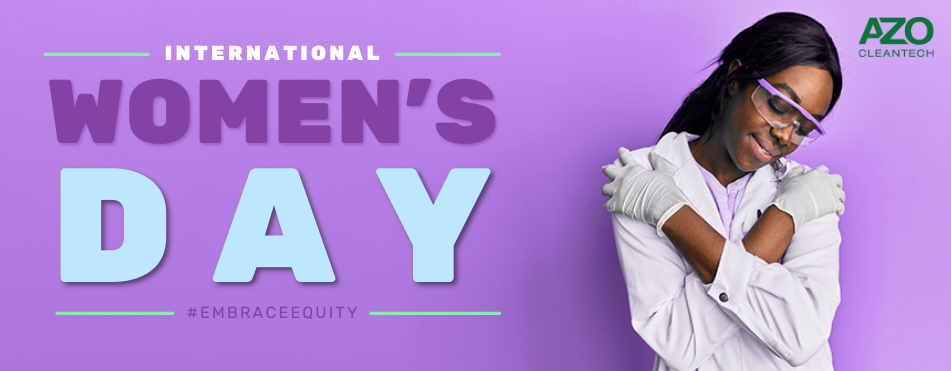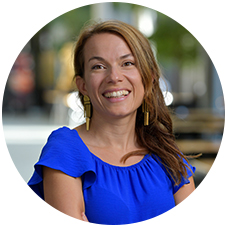
This International Women's Day, AZoCleantech spoke to inspiring women who have made a difference in the Clean Technology field. For this interview, we spoke to Dr. Adina Rom, the Executive Director of ETH for Development.
Please can you introduce yourself and your role at ETH Zürich?
I have been the Executive Director of ETH for Development (ETH4D) since its establishment in 2019. ETH4D aims to develop innovations that address global challenges and educate future sustainable development leaders.
The network consists of around 45 professorships at ETH Zurich. We have various programs, such as “Engineering for Humanitarian Action”, a partnership with École Polytechnique Fédérale de Lausanne (EPFL), and the International Committee of the Red Cross, where we put science and technology at the service of humanitarian action, with 12 innovative research collaborations, courses on topics such as cybersecurity and digitization, and a program to bring innovations to scale.
Together with our partner Ashesi University in Ghana, we offer a Master’s in Mechatronics Engineering. In addition to such research and education programs, we provide opportunities for academic exchanges with partners in low- and middle-income countries. Together with the African Student Association of Zurich, we conduct workshops for diversity, equity, and inclusion in research and teaching at ETH Zurich.
I also teach courses about social impact measurement and research the impact of renewable energies on households in rural Africa. In 2017, I co-founded an ETH spinoff called Policy Analytics which conducts impact evaluations of social programs. I also co-founded the Graduate Applications International Network (GAIN), which supports prospective graduate students from across Africa to join top Social Science Programs and serve on the board of the NGOs TamTam Africa, NCBI Switzerland, and SOS Mediterranée.
Sustainable technologies are advancing across many different fields. What inspired you to study and work in this area?
I have always been curious about global inequality and wondered how to use my privilege to make a difference. Science and technology have dramatically improved our living conditions. Until 1800, around 45% of children died before their 5th birthday. Today, that number is approximately 5%. Of course, this is still too many – but it illustrates that improvements in living conditions are possible.
Unfortunately, 60% of the world’s population lives on what would be less than 10 USD daily in the United States. Yet, the lion’s share of innovations is still being developed for the rich few. Therefore, I wonder how we can recalibrate teaching and research so that it speaks to the realities of most of the world.
Tell us about one of your projects where you felt you contributed or learned a lot.
Through my work with Carol Nekesa, Karen Levy, and others at Innovations for Poverty Action in Kenya, I have helped grow a research organization and ecosystem that produces excellent and impactful research and led to the establishment of evidence-driven NGOs such as Evidence Action, Give Directly, TamTam Africa and Precision Development. These organizations are scaling science-based innovations to reduce poverty and improve millions of lives.
Together with my team at ETH4D, we have built a strong network of professorships, administrative units and centers that work with African university partners, industry, NGOs and governmental institutions to address global challenges.
We have successfully launched dozens of innovation projects for sustainable development, humanitarian action, and are building long-term educational partnerships with universities in Ghana and Kenya. The ETH4D network has conducted around 50 faculty and student exchanges with these universities and developed 40 courses related to global development at ETH Zurich.
In the future, we would like to establish several additional programs, including a social entrepreneurship program and a new educational partnership with an African university. Finally, we want to strengthen the ecosystem for evidence-based poverty reduction in Switzerland.
#EmbraceEquity is the theme for International Women’s Day 2023, focusing on helping everyone actively support equity within our lives. How do you think gender equity affects women in the STEM industry?
Women face many additional obstacles and barriers compared to men, including the lack of female role models and mentors. In addition, research shows that women are more likely to be asked to do non-promotable tasks and more likely to be penalized if they disagree. Women also do more care work and carry larger mental loads; this is often particularly true for mothers of young children. In Switzerland, mothers dedicated to their careers face much pushback and feel they must constantly justify themselves.
Moreover, women tend to face a likability-competency tradeoff that men often do not face. A study at an American business school involved a lecturer presenting a case study about a successful businessperson. They told a random half of the students that the person’s name was Heidi, the other half that their name was Howard, and everything else remained the same. The students judged the same behavior as more power-hungry and self-promoting when a woman did it. This is an additional issue that can lead women to slow down their ambitions and careers.
Prof. Iris Bohnet from the Harvard Kennedy School has written extensively about these biases and what we can do about them. I recommend her book “What Works: Gender Equality by Design” as it helps uncover our unconscious biases.
It is essential not to forget that gender also intersects with other factors. Women and girls who are, for example, BIPOC or from low-income countries or low-income families face many additional layers of discrimination, prejudice, and exclusion. We try to address this in the various initiatives and organizations I am involved with.
Do you have any advice for young women or girls who want to study or start a career in science?
- Do not let people stop you: we live in a world where some people are not used to women and people belonging to other discriminated groups in STEM and any position of power. Hopefully, they will learn over time – it is important that you do not let them stop you in the meantime.
- Surround yourself with people who believe in you: In my career, I have had mentors who saw what I could achieve, even if I didn't see it myself yet. I advise looking for such people and trying to surround yourself with supportive people as much as possible.
- Frame things in a way that inspires you: It helps me to create a context that inspires me. When I have a presentation or meeting I am scared of, I try to focus on questions like: “What can I learn? What can I contribute?” rather than “Am I good enough?”
Where can readers find more information?
About Adina Rom
 Dr. Adina Rom serves as the Executive Director of ETH for Development (ETH4D), an ETH-wide program that develops innovations that address global challenges and educates future leaders of sustainable development.
Dr. Adina Rom serves as the Executive Director of ETH for Development (ETH4D), an ETH-wide program that develops innovations that address global challenges and educates future leaders of sustainable development.
She completed her Ph.D. at the ETH Development Economics Group in 2018, studying renewable energies in Sub-Saharan Africa and impact evaluations more broadly.
Before joining ETH, Adina obtained her Master's in Public Administration/International Development (MPA/ID) at the Harvard Kennedy School. She also served as Director of Operations for Innovations for Poverty Action (IPA) in Kenya and as a Research Associate for the Center for Effective Global Action (CEGA) at UC Berkeley.
As the founder of Policy Analytics, she helps organizations use and generate data to increase their social impact. She co-founded the Graduate Applications International Network (GAIN), which supports prospective international graduate students from across Africa applying for MA and Doctoral programs in social sciences internationally. She serves on the NGO SOS Mediterranée European boards, a humanitarian organization dedicated to rescuing life in the Mediterranean, Together- Against-Malaria Africa, an evidence-based NGO fighting malaria, and NCBI Switzerland, which fights discrimination and racism in Switzerland.
Disclaimer: The views expressed here are those of the interviewee and do not necessarily represent the views of AZoM.com Limited (T/A) AZoNetwork, the owner and operator of this website. This disclaimer forms part of the Terms and Conditions of use of this website.